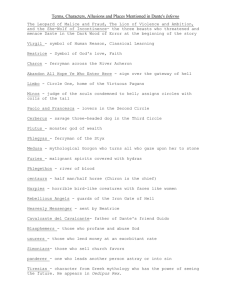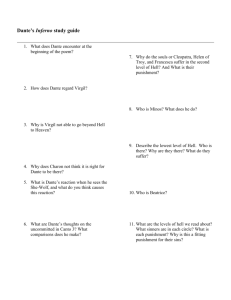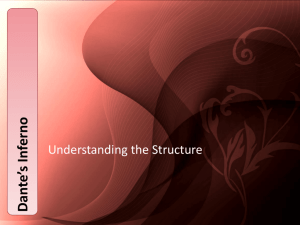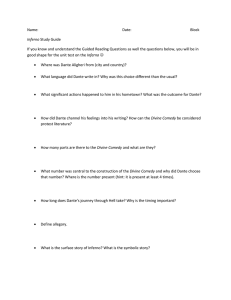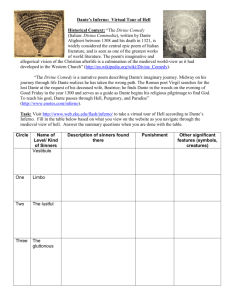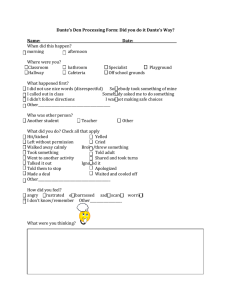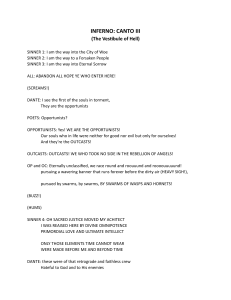Dante Alighieri.doc
advertisement
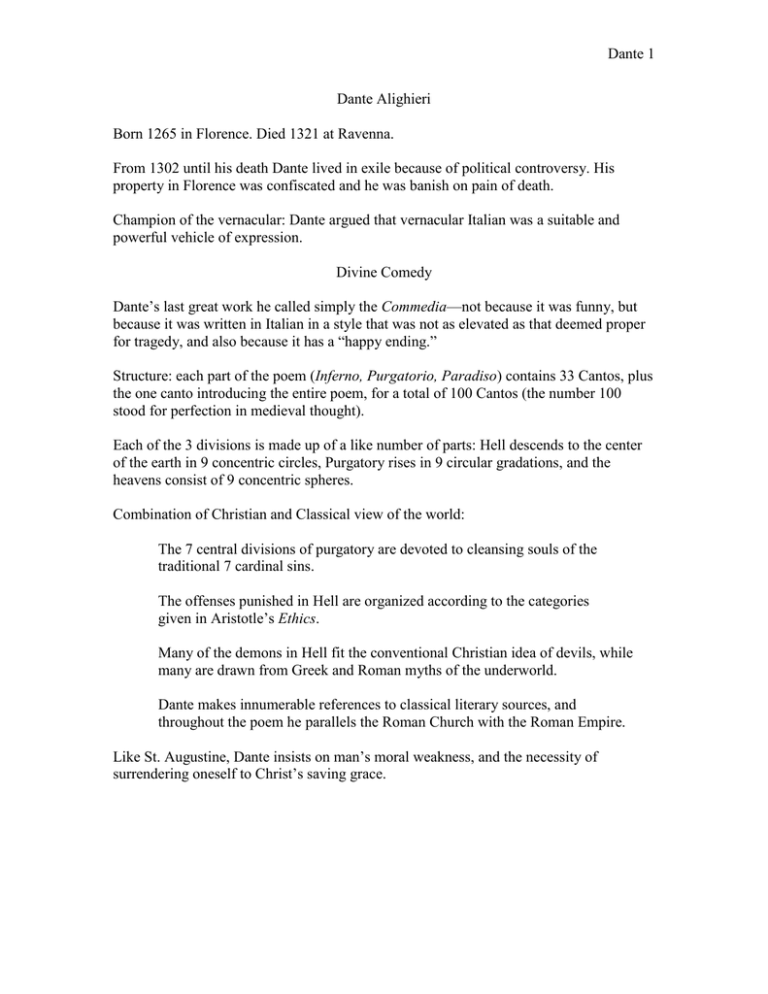
Dante 1 Dante Alighieri Born 1265 in Florence. Died 1321 at Ravenna. From 1302 until his death Dante lived in exile because of political controversy. His property in Florence was confiscated and he was banish on pain of death. Champion of the vernacular: Dante argued that vernacular Italian was a suitable and powerful vehicle of expression. Divine Comedy Dante’s last great work he called simply the Commedia—not because it was funny, but because it was written in Italian in a style that was not as elevated as that deemed proper for tragedy, and also because it has a “happy ending.” Structure: each part of the poem (Inferno, Purgatorio, Paradiso) contains 33 Cantos, plus the one canto introducing the entire poem, for a total of 100 Cantos (the number 100 stood for perfection in medieval thought). Each of the 3 divisions is made up of a like number of parts: Hell descends to the center of the earth in 9 concentric circles, Purgatory rises in 9 circular gradations, and the heavens consist of 9 concentric spheres. Combination of Christian and Classical view of the world: The 7 central divisions of purgatory are devoted to cleansing souls of the traditional 7 cardinal sins. The offenses punished in Hell are organized according to the categories given in Aristotle’s Ethics. Many of the demons in Hell fit the conventional Christian idea of devils, while many are drawn from Greek and Roman myths of the underworld. Dante makes innumerable references to classical literary sources, and throughout the poem he parallels the Roman Church with the Roman Empire. Like St. Augustine, Dante insists on man’s moral weakness, and the necessity of surrendering oneself to Christ’s saving grace. Dante 2 Allegorical aspects: Dante represents mankind, the noble soul, but he also represents himself. Virgil represents human reason, but also the great epic poet that Dante considers his mentor and model. The poem describes the state of various souls after death. Concerns the most universal values: good and evil; man’s responsibility; free will; predestination. The Commedia is a glorification of the ways of God, and a picture of the ways in which men have thwarted the divine plan. Inferno In Dante’s vision of Hell, the punishment fits the crime: each sinner suffers a punishment that is a symbolic retribution for the crime he committed while alive. Sin: For Dante, sin is both and injury and an injustice; a sinner may offer harm to God either directly (as do the blasphemers and heretics) or indirectly, violating some law of the natural world which God has created (as do sodomites and usurers); we may sin by harming the person or rights of others (as do tyrants, thugs or brigands) or by harming ourselves (as do the suicides). In all cases of sin, the sinner perverts or destroys some vessel in which God might have communicated the truth of his nature. All of the sins punished in Inferno blind the sinner from seeing the truth and rightness of God’s divine order. Dante believed men were responsible for their own happiness in this world and the next. The sinner in Hell refuses God’s grace, and in a real sense, wants to be in Hell.
